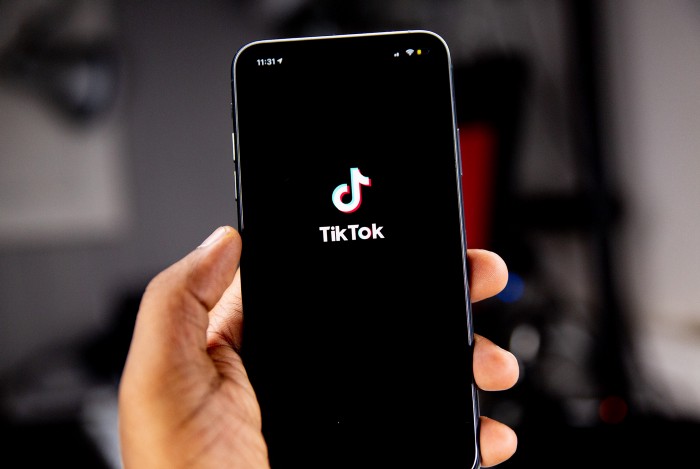2020 Macro Trend: Restructured Reality
COVID-19 has and will continue to affect the very foundation of our society. With more than 5 million cases worldwide, 165,000 Americans dead, and over 16 million US jobs lost, it has woken people up to some of the nation’s most glaring disparities. Cases are most densely concentrated in low-income communities of color and “essential” workers are bearing the brunt of the danger. As work, school, and other activities shift online, lack of access to high-speed internet and electronic devices becomes a much more apparent source of inequality. However, the pandemic may also serve as an opportunity to finally address the injustices it is so clearly revealing. As we determine what we want our next normal to look like, we are recognizing the importance of rebuilding our institutions stronger than they once were. “The last thing I want to do is watch everything come apart, and then pick up the pieces and try to reassemble them exactly the way they were assembled before. You want to put it together differently: You want to build better, build smarter, build safer, build stronger, build more resilient,” says Stephanie Kelton, a professor of economics and public policy at Stony Brook University.
With less disposable income and a new perspective on what really matters, consumers are thinking much more critically about how and where they spend their money. What was once an isolated purchasing decision is now a moral choice with real social, environmental, and economic implications. The understanding that all systems are connected brings clarity to more than just purchasing decisions. If COVID-19 has taught us anything, it’s that human and economic health are intrinsically linked.
The safety of our physical surroundings, both natural and manufactured, dictate our well-being. “For the first time in history, everyone around the world is recognizing how the indoor environment influences our health,” says Joseph Allen, an assistant professor at Harvard. This recognition is reflected in an onslaught of new projects that accommodate social distancing and introduce self-sanitizing technologies to the masses. But, we can’t design our way out of every issue. Our consideration for the environment must extend beyond indoor spaces to include the health and well-being of our planet. Our economy cannot thrive until our planet and people do. What should give us hope is our overwhelmingly optimistic reaction to such a devastating reality. In April 2020, Google searches for “good news” reached an all-time high, now at levels that are more than twice that of any time since Google began publishing search data in 2004. In March 2020, John Krasinski launched Some Good News, reporting on uplifting stories to help spread happiness, and by the beginning of May 2020, the first episode had over 17 million views. Our collective response to tragedy has been to seek out positivity and uplift each other whenever possible.
During this time of great uncertainty, we have also been able to find hope in the discovery of new possibilities. The realization that our future is not guaranteed has inspired us to care for our planet while we still can. Carbon-neutral initiatives have been around for a while, but it wasn’t until recently that companies have adopted carbon-positive practices for mainstream marketing use. As we invest in our future on Earth, we also consider the opportunities that exist beyond our planet. The discovery and exploration of uncharted territories are driving innovation forward. SpaceX’s recent launch represented a new era of human spaceflight as it carried astronauts from American soil to the International Space Station for the first time since 2011.
If there’s one thing that history has shown us, it’s that major crises drive real change. Although COVID-19 has brought with it incalculable suffering, it has also given us an opportunity to rebuild stronger and more unified than ever before. The choices we make today and in November will determine what our future holds.
Micro Trends
1. The Next Normal
COVID-19 has changed everything. In a single wave, the pandemic has swept away what little semblance of safety and security we had and left in its wake a path of destruction that even our most fundamental institutions are proving unable to survive — at least as they once did. But, with that destruction, comes an opportunity to usher in a new era driven by the collective pursuit of equality, sustainability, and well-being.
2. R(eco)nnection
If COVID-19 has taught us anything, it’s that human and economic health are intrinsically linked. Not only that, but the ensuing collapse of the American way of life has made it ever more apparent that our physical surroundings, both natural and manufactured, dictate our well-being. From the air pollution and density of urban areas to the unsanitized surfaces of office buildings, our survival is dependent upon the safety of the environments we reside in. This recognition is reflected in an onslaught of new projects that accommodate social distancing and introduce self-sanitizing technologies to the masses.
3. Positive Potential
The past year has brought economic, environmental, and political struggles, but it has also brought an underlying sense of hope to combat them. An optimistic outlook has become a sort of rebellion during a time when it’s difficult to see the good in the world. Consumers are making a concerted effort to seek out positivity and Google searches for “good news” have reached an all-time high.
4. Future Now
Coming to terms with the fact that our futures are not certain, we are recognizing the importance of preserving the planet while we still can. As we invest in our future on Earth, we are also considering the opportunities that exist beyond our planet. The discovery and exploration of uncharted territories are accelerating forward as privately-owned companies like SpaceX compete to be the first to take humans to Mars.
If you’re interested in the full Restructured Reality report or want to learn more about trends that are growing — and dying, please contact hello@trendalytics.co.


